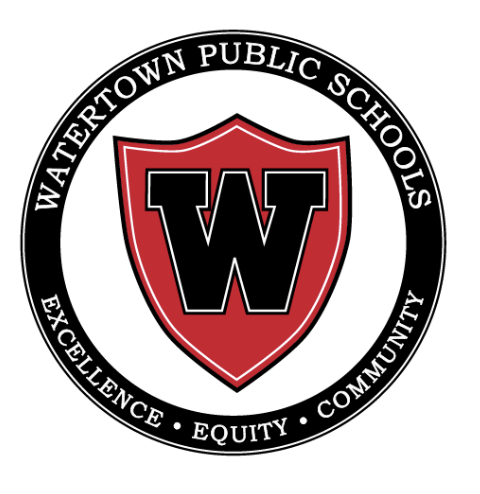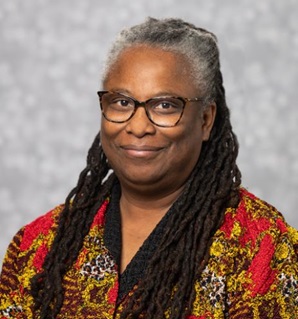
Now in her second year in the role of the Watertown Public School’s Director of Diversity, Equity, Inclusion and Belonging, Dr. Ceronne Daly said she approaches her work with a goal to build connection not just between her and students, but between families.
Her work incorporates programs that started before DEIB began, and she seeks to make it part of what students and families experience in the Watertown Schools.
“We’re not doing DEI as an add-on,” Daly stresses. “This work is woven into our strategic plan. If we stopped calling it DEI tomorrow, we’d still be doing restorative practices, still fostering student voices, still building inclusive curriculum.”
On Thursday April 3, the Trump administration announced it would be pulling funding from public schools all over the country if they did not pull their DEI programs, very much like the program Watertown Public Schools has had in place since 2021, and that has been led by since October 2023.
Speaking to Watertown News earlier in March on the subject of budgets, Watertown Superintendent Dede Galdston said, “if I were to think about what the core purpose of the [DEIB] department is, it is family engagement, student engagement, inclusion, and a sense of belonging. I think that there’s a misperception of what DEI is for us. It is making sure that every kid, every kid, doesn’t matter who you are, gets what they need to be successful.”
Neither Galdston nor Daly responded to requests for comment on the Trump administration’s announcement. As of this writing the DEI department is still included in the school district’s FY26 budget.
On April 3, the Federal Department of Education sent a letter to the Massachusetts Department of Elementary and Secondary Education (DESE) entitled, “Reminder of Legal Obligations Undertaken in Exchange for Receiving Federal Financial Assistance and Request for Certification under Title VI.”
The letter include the quote: “Title VI of the Civil Rights Act unambiguously imposes a condition on the grant of federal moneys. Section 601 of Title VI states that “[n]o person … shall, on the ground of race, color, or national origin, be excluded from participation in, be denied the benefits, or be subjected to discrimination under any program or activity receiving Federal financial assistance.”
Patrick A. Tutwiler, Interim Commissioner of DESE, responded to request with a letter which reads, in part.
“The Department submits regular applications certifying compliance with all required assurances for federal programs, all of which have been approved by the U.S. Department of Education (USDOE). Those certifications remain in effect, as do many assurances regarding Title VI previously provided and communicated to and on file with USDOE. The Department has been faithfully implementing education programs in accordance with all federal law, including antidiscrimination law, and will continue to do so. I am confident that our programs—and the principles underlying our programs—are fully compliant with Title VI.”

Asked how she responds to critics who see DEI as divisive, Daly is clear: “Belonging is the target of all this work. It’s not about taking space away from anyone. It’s about creating more space so we can all thrive.”
One way Daly builds connection is through visibility. She spends one day each month stationed at a different school in what she calls “residencies” — responding to emails in hallways, chatting with students in the cafeteria, and observing the rhythm of school life. These small acts of presence create trust.
“You see things that have no meaning to anyone else,” she says, recalling watching a preschooler learning to use a wheelchair, who now zooms down the hallway with confidence. “Just joy.”
Caregivers are also central to Daly’s work. She’s hosted monthly family conversations at the Watertown Free Public Library, and recently launched a Caregiver Talk Series driven by parents who wanted peer-to-peer discussions on topics like screen time and mental health.
“People like the opportunity to connect with each other,” Daly explains. “Sometimes, just having space to be selfish about your concerns is incredibly powerful.”
That focus on inclusion extends beyond structured events, Daly said. Equity facilitators — trained educators at each school — help staff engage with issues of race, identity, and justice in ways tailored to their communities. In elementary schools, the emphasis is on supporting teachers as they make meaning of equity in the classroom. In middle and high schools, the focus shifts to helping students navigate a pluralistic world with empathy and curiosity.
Looking ahead, Daly is working to better align DEI efforts with professional learning and curriculum development, and to support transitions at the middle and high school levels. But at the heart of her work is a simple principle: show up, listen, and help others feel seen.
“In a world that’s often black and white,” she says, “we want to prepare people to see in color, and if they can’t yet, we want to prepare them to ask questions.”
I’d like to thank Dr. Daly and Patrick Tutwiler for continuing to create a healthy and vibrant social environment in which our children and families can learn, grow and thrive theme selves!
Good to hear that this work continues in these challenging times.